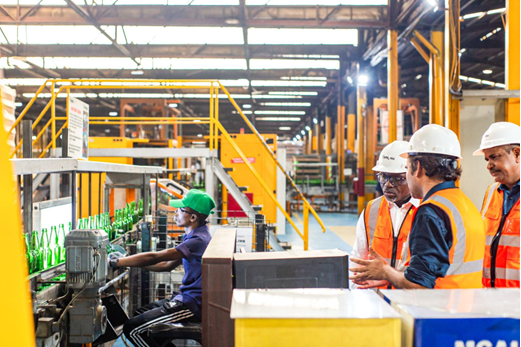- The East African Crude Oil Pipeline (EACOP) is facing financing challenges
- China National Offshore Oil Corporation (CNOOC) and TotalEnergies are stepping in to infuse more cash into the project
- The project, worth $5 billion, has faced resistance from environmentalists and international community members
Place your adverts here on InfoDig @ low rates; banner ads, sponsored links and guest articles etc. Contact us
The controversial joint oil project between Tanzania, Uganda, and external stakeholders, the East African Crude Oil Pipeline (Eacop), seem to be facing some financing challenges. As a result, its two primary foreign stakeholders China National Offshore Oil Corporation (CNOOC), and TotalEnergies, have stepped in.
It was recently revealed that the Eacop project is faced with debt financing issues, prompting its stakeholders, including TotalEnergies, and CNOOC to infuse more cash into the oil venture.
The East African Crude Oil Pipeline (EACOP) project which is intended to deliver oil from Uganda's Lake Albert reserves to the port of Tanga in Tanzania is valued at $5 billion.
However, this controversial project has been faced with push back from environmentalists and some concerned members of the international community which claim that the project is sure to damage the environment around it and cause the displacement of communities within its radius.
As a result, six Western banks, including BNP Paribas, Société Generale, and Barclays, rejected financing the project, as seen on Sputnik.
In response, the Ugandan Minister of Energy and Mineral Development;Ruth Nankabirwa recently traveled to Beijing to meet with possible Chinese funders who are thought to be essential to the project's success.
According to reports, she acknowledged that significant restructuring has been necessary to get funding.
Due to issues with Western banks, the funding strategy has changed from its initial intention of 60% loan and 40% equity to a virtually equal split.
"Now equity is surpassing debt, from 40% to now almost 52%, so you see how shareholders are committed to look for the money to make sure the project doesn't stall," she was quoted as saying.
"As you look for money to put in, that means the debt, the external tranche, reduces," she added.
According to the minister, Uganda has committed an extra $45 million to the project, and Tanzania is expected to equal that amount.
TotalEnergies just committed to providing an additional $400 million.














